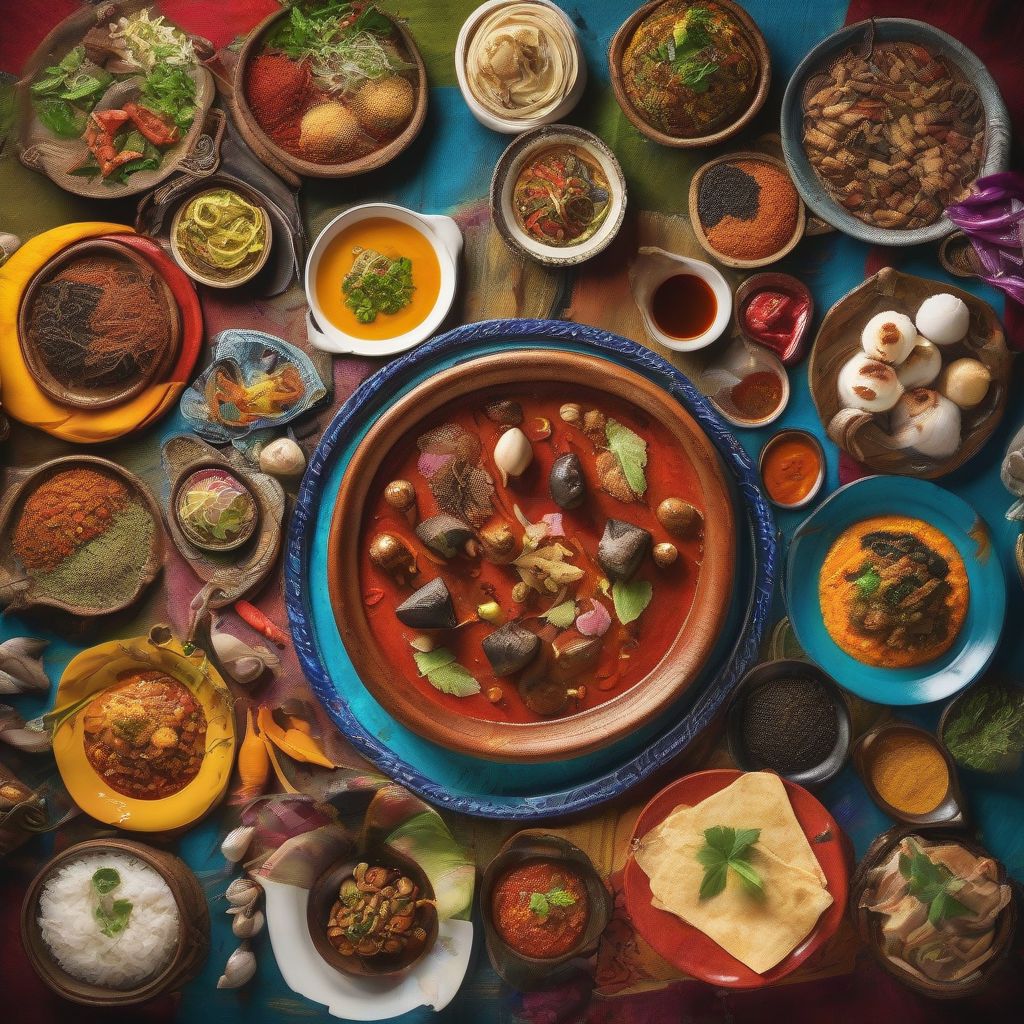Have you ever traveled somewhere new and been completely captivated by the local food? That unique blend of flavors, ingredients, and traditions tells a story, doesn’t it? It’s a story of a place, its people, and their history. But in our increasingly globalized world, how can we ensure these culinary narratives aren’t lost to the sands of time? The future of preserving authentic local cuisines is a topic close to my heart, both as a nutritionist and a passionate foodie. Let’s explore the challenges and opportunities that lie ahead.
The Challenges of Preserving Culinary Heritage
Several factors threaten the survival of authentic local cuisines. Globalization, while offering many benefits, can lead to the homogenization of food cultures. Fast food chains and standardized menus often overshadow traditional dishes, especially among younger generations. The allure of convenience and affordability sometimes outweighs the desire for cultural preservation.
The Impact of Modernization
Modern agricultural practices, while increasing yields, can also lead to a decline in biodiversity. Heirloom varieties of fruits, vegetables, and grains, often central to local cuisines, are replaced by commercially viable but less flavorful alternatives. This shift impacts not only the taste of dishes but also the nutritional value and cultural significance tied to these ingredients.
Loss of Traditional Knowledge
Another significant challenge is the loss of traditional culinary knowledge. As older generations pass away, their recipes and techniques often go with them. In many cultures, culinary knowledge is passed down orally, making it particularly vulnerable to being lost. Furthermore, the migration of people from rural areas to urban centers can disrupt the transmission of these culinary traditions.
Embracing the Future: Strategies for Preservation
Despite the challenges, there’s hope for the future of authentic local cuisines. A growing awareness of the importance of culinary heritage is driving innovative preservation efforts worldwide.
Documentation and Digitization
Documenting traditional recipes and culinary practices is crucial. This can take many forms, from cookbooks and online databases to video recordings of cooking techniques. Digitization makes this information accessible to a wider audience, including younger generations who may be less connected to traditional ways.
Culinary Tourism and Education
Culinary tourism offers a powerful tool for preservation. By showcasing local cuisines to visitors, we create economic incentives for communities to maintain their culinary traditions. Educational programs in schools and community centers can also play a vital role in transmitting knowledge to younger generations.
Supporting Local Food Systems
Supporting local farmers markets, community gardens, and sustainable agriculture initiatives is essential. These efforts help preserve biodiversity and ensure the availability of traditional ingredients. By choosing to buy locally, we not only support our communities but also contribute to the preservation of culinary heritage.
The Role of Technology
Technology can be a double-edged sword when it comes to food culture. While it can contribute to homogenization, it can also be leveraged for preservation. Online platforms can connect people with local food producers, share recipes, and document culinary traditions. Mobile apps can translate recipes, provide cooking instructions, and even guide users through local markets.
Social Media and Storytelling
Social media platforms offer a powerful way to share stories about food and connect with people who are passionate about preserving culinary traditions. By sharing our food experiences, we can raise awareness and inspire others to explore the rich diversity of local cuisines.
 Preserving Local Cuisines
Preserving Local Cuisines
The Power of Community
Ultimately, the future of preserving authentic local cuisines rests on the shoulders of communities. It requires a collective effort to value, protect, and celebrate our culinary heritage. By supporting local food producers, sharing recipes, and teaching younger generations about traditional cooking techniques, we can ensure that these culinary treasures are passed down for generations to come.
Empowering Local Chefs and Food Producers
Chefs play a critical role in preserving and promoting local cuisines. By incorporating traditional ingredients and techniques into their menus, they can introduce these flavors to a wider audience. Supporting local food producers empowers them to continue growing heirloom varieties and practicing sustainable agriculture.
Celebrating Food Festivals and Events
Food festivals and cultural events provide opportunities to celebrate and showcase local cuisines. These gatherings bring communities together, fostering a sense of pride and connection to culinary heritage. They also offer a platform for sharing knowledge and inspiring the next generation of food enthusiasts.
Conclusion: A Delicious Future
Preserving authentic local cuisines is not just about safeguarding recipes; it’s about protecting cultural identity, promoting biodiversity, and ensuring a more flavorful and diverse culinary landscape for future generations. While challenges exist, the growing awareness of the importance of culinary heritage, coupled with innovative preservation efforts and the power of community, offers a recipe for a delicious future.
By embracing technology, supporting local food systems, and sharing our culinary stories, we can all contribute to the preservation of these invaluable cultural treasures. What steps can you take today to support your local food community and help preserve the flavors of your region? Share your thoughts and ideas in the comments below!



